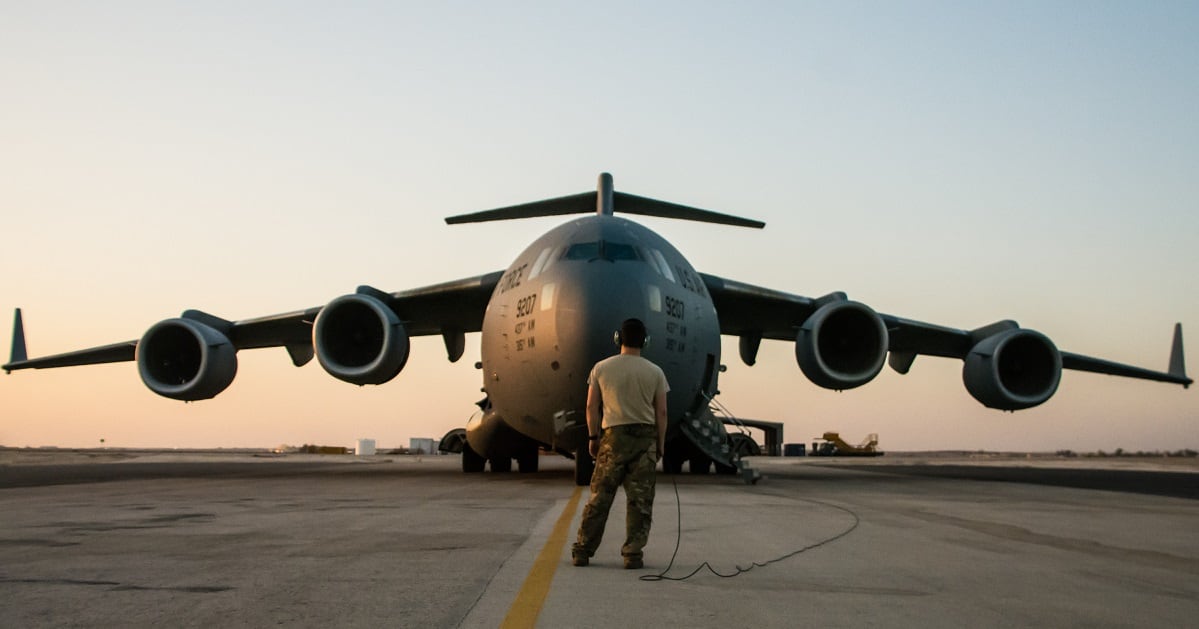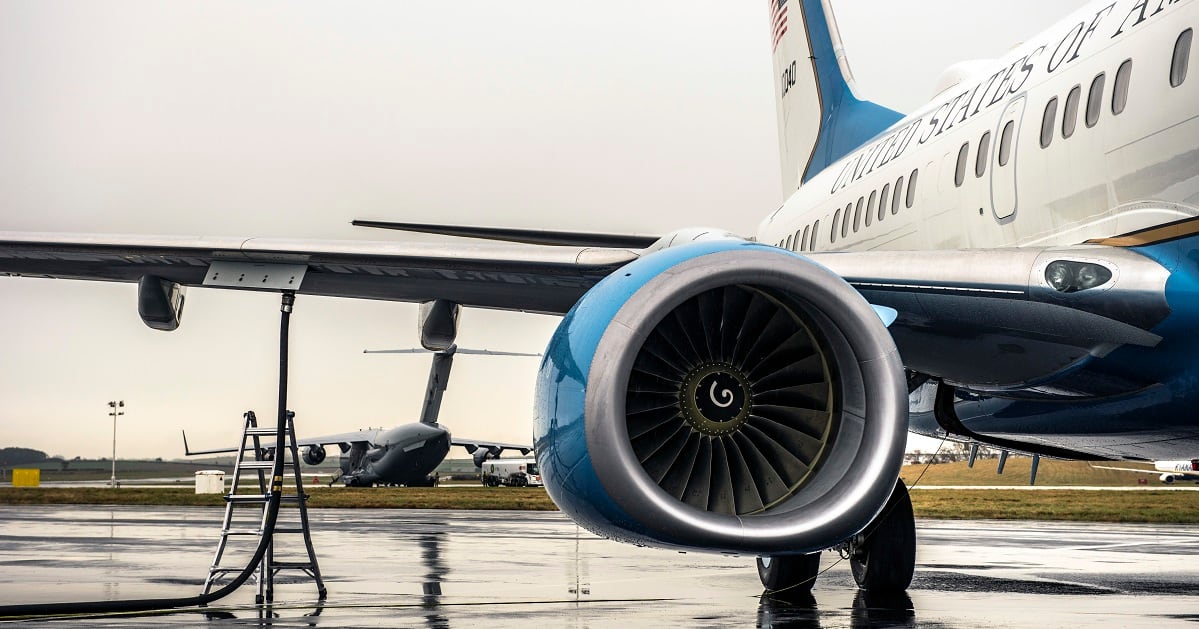A mobility aircrew’s stay earlier this year at a golf resort in Scotland owned by President Trump sparked controversy and an Air Force review of how it uses civil airports and nearby lodging during international flights.
But an Air Mobility Command review found no evidence that Prestwick Airport near Glasgow, as well as nearby lodging locations including Trump Turnberry, were selected for any reason other than the need to keep mobility aircraft flying most efficiently.
The revelation in September of a C-17 Globemaster III crew’s March stop at Prestwick and stay at Turnberry drew widespread criticism and questions over whether the Air Force was improperly steering taxpayer dollars to businesses owned by Trump. The House Oversight Committee is reviewing the stop as part of a broader investigation into the military’s spending at and around Turnberry.
The controversy even held up the nomination of Air Force Secretary Barbara Barrett for several weeks after Sen. Richard Blumenthal, D-Conn., sought her assurance that airmen would no longer stay at Trump-owned properties. Barrett did not agree to that restriction.
Rep. John Garamendi, D-Calif., chairman of the House Armed Services readiness subcommittee, said in a Friday statement that the report “ignores a blatant violation" of the Constitution’s prohibition on the president receiving domestic emoluments, or payments, from the United States apart from his official salary.
“President Trump benefits from any income earned at his properties throughout the world, including Turnberry,” Garamendi said. “There still is no Department of Defense policy directing the Army, Navy, Air Force or Marine Corps to obey the Constitution and prevent the expenditure of any money at Trump properties. As chairman of the Armed Services subcommittee on readiness, I will do everything in my power to ensure the necessary steps are taken by the service branches to obey the Constitution.”
The AMC review, which was released Friday, said the Air Force finds civil airports such as Prestwick are often better stops for mobility aircraft than military airfields such as RAF Mildenhall in England or Ramstein or Spangdahlem air bases in Germany.
RELATED

Those military airfields are sometimes unable to support all the Air Force’s necessary mobility flights — especially during short-notice missions. They typically are open 15 to 19 hours per day, which limits scheduling flexibility, whereas Prestwick and other civil air fields operate around the clock.
The military air fields also have limitations on how many aircraft carrying hazardous cargo they can handle at any given time, whereas Prestwick has few hazardous cargo restrictions, the review said.
Prestwick, which is in the north of the United Kingdom, is in an ideal location for a rest and refueling stop. C-130s typically can’t reach Mildenhall or Ramstein without stopping for fuel, the review said, and the weather in the Glasgow area is relatively better than other airfields in Ireland or the U.K., with better visibility and less precipitation.
Stops at Prestwick have increased from 88 in 2014 to 259 in 2019, the report said, but they were already increasing before Trump was elected. The increasing number of Prestwick stops tracked with the overall increase in mobility operations in Europe and the Middle East beginning in 2014, after Russia invaded the Crimean peninsula and the Islamic State began tearing across Iraq and Syria.
Recent stops at Prestwick, while the highest of recent years, are still not as numerous as they were in 2009, when operations in Iraq were running high before the drawdown there. AMC aircraft stopped at Prestwick 286 times that year.
The Air Force also found that although AMC aircrews stayed at Turnberry the 31 times since 2008, that site was chosen only after other suitable locations closer to Prestwick were found to be unavailable. To be suitable, lodging must be near the airfield and dining options, be able to accommodate the entire crew, be at or below the allowable Defense Department lodging rate, and have the right conditions for crews to rest. Sometimes, the Air Force said in September, an aircrew will need rooms with black-out blinds so they can sleep during the daytime if their mission requires it.
The Air Force said Turnberry’s nightly rate was $136 at the time of the crew’s controversial stay, which was below the DoD per diem of $166.
There were six times when aircrews stayed at Turnberry for more than 24 hours. Of those extended stays, five were because their aircraft needed to be repaired and the sixth was delayed due to operational reasons.
The review found that no changes are needed in the way the Air Force plans its missions or selects en route airfields. But the review said that while no inappropriate decisions were made, the Air Force could make some improvements in its training for aircraft commanders when choosing off-base commercial lodging — particularly in light of the very public controversy over the Turnberry stay.
For example, the report said, air commanders should ask “are there any obvious concerns to be considered about public perception of where the crew is lodging?”
Stephen Losey is the air warfare reporter for Defense News. He previously covered leadership and personnel issues at Air Force Times, and the Pentagon, special operations and air warfare at Military.com. He has traveled to the Middle East to cover U.S. Air Force operations.




